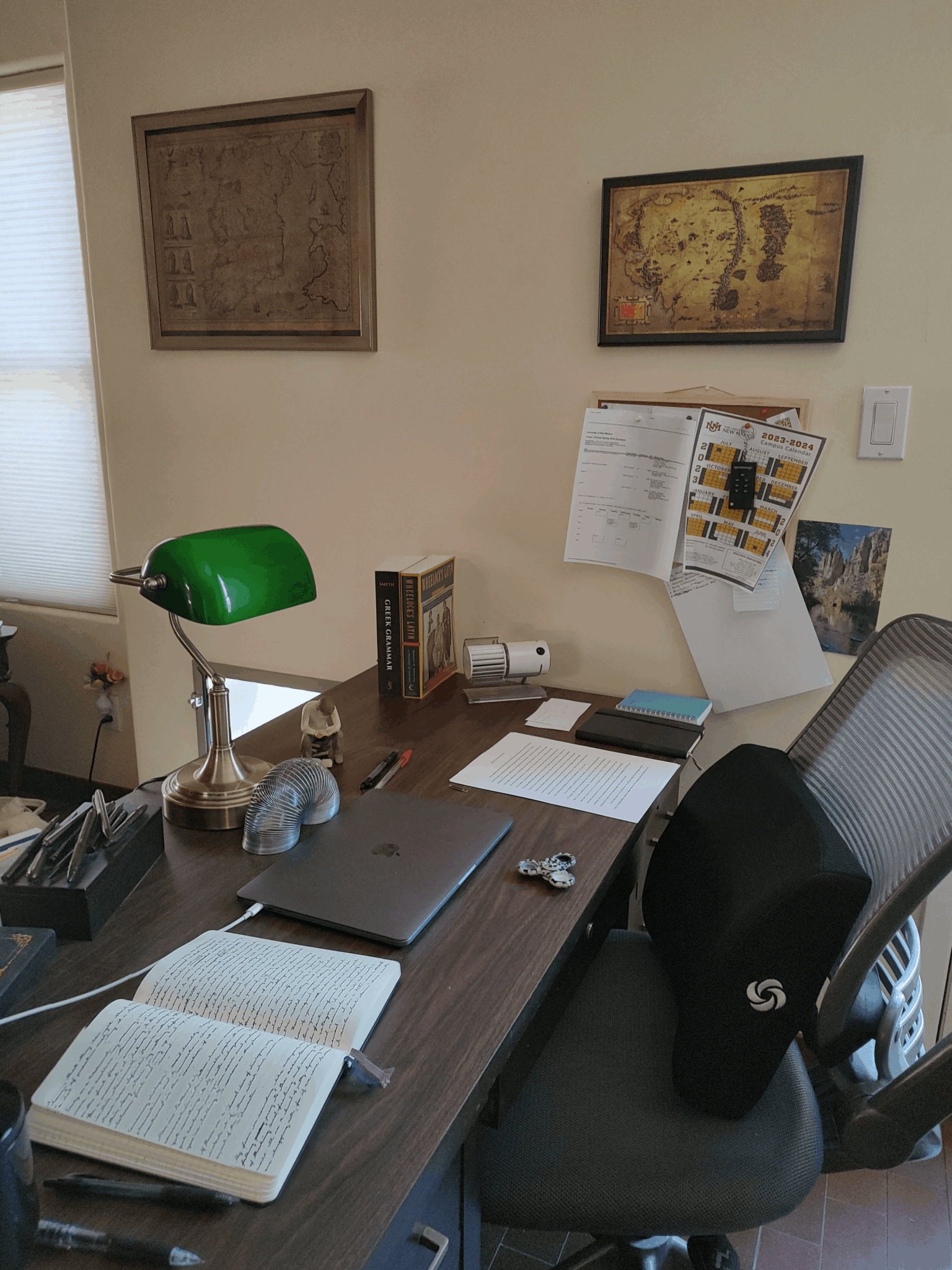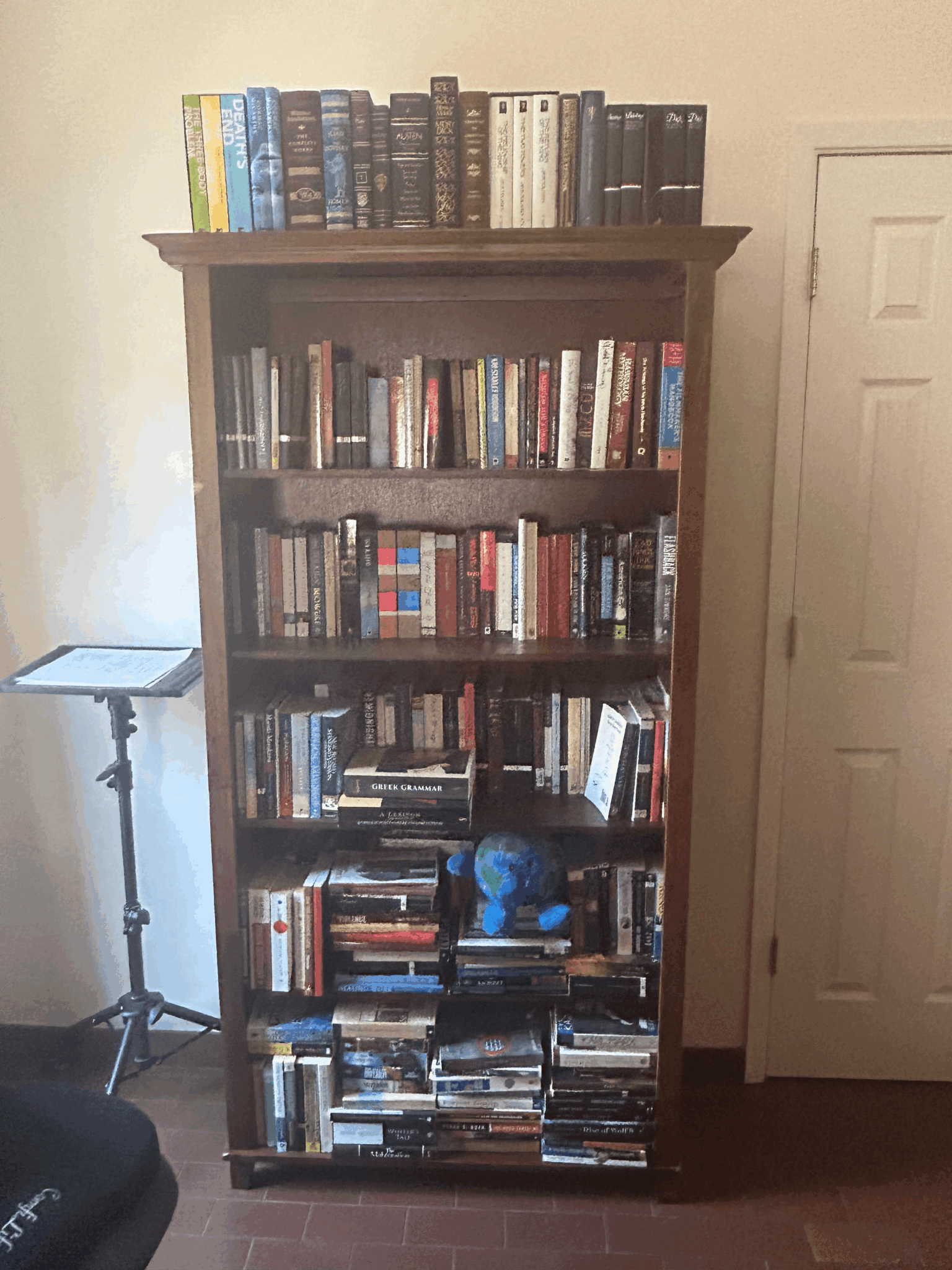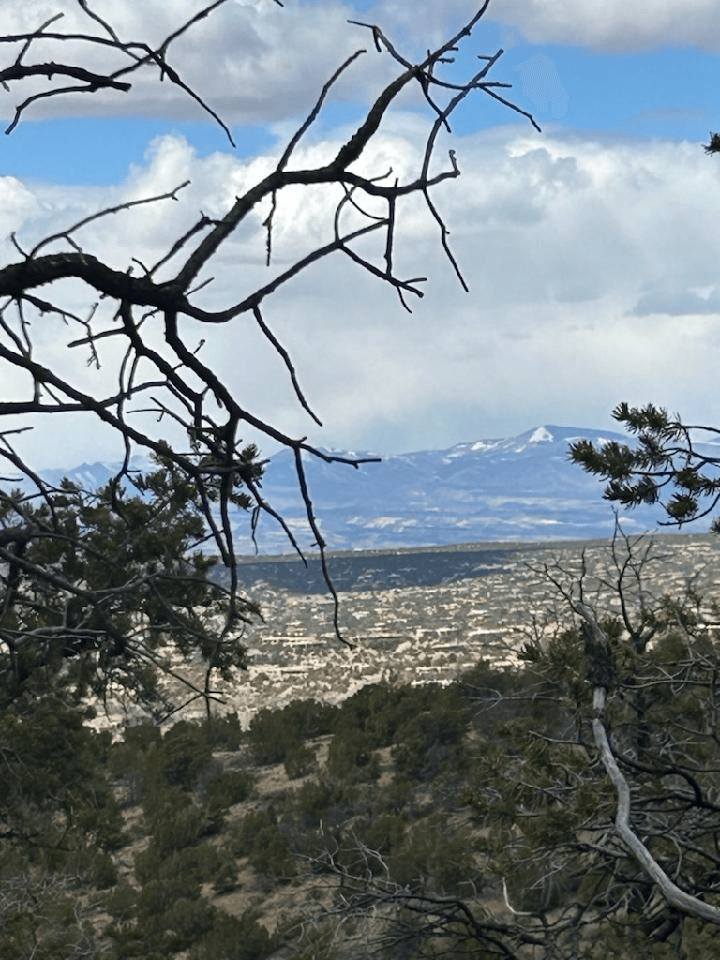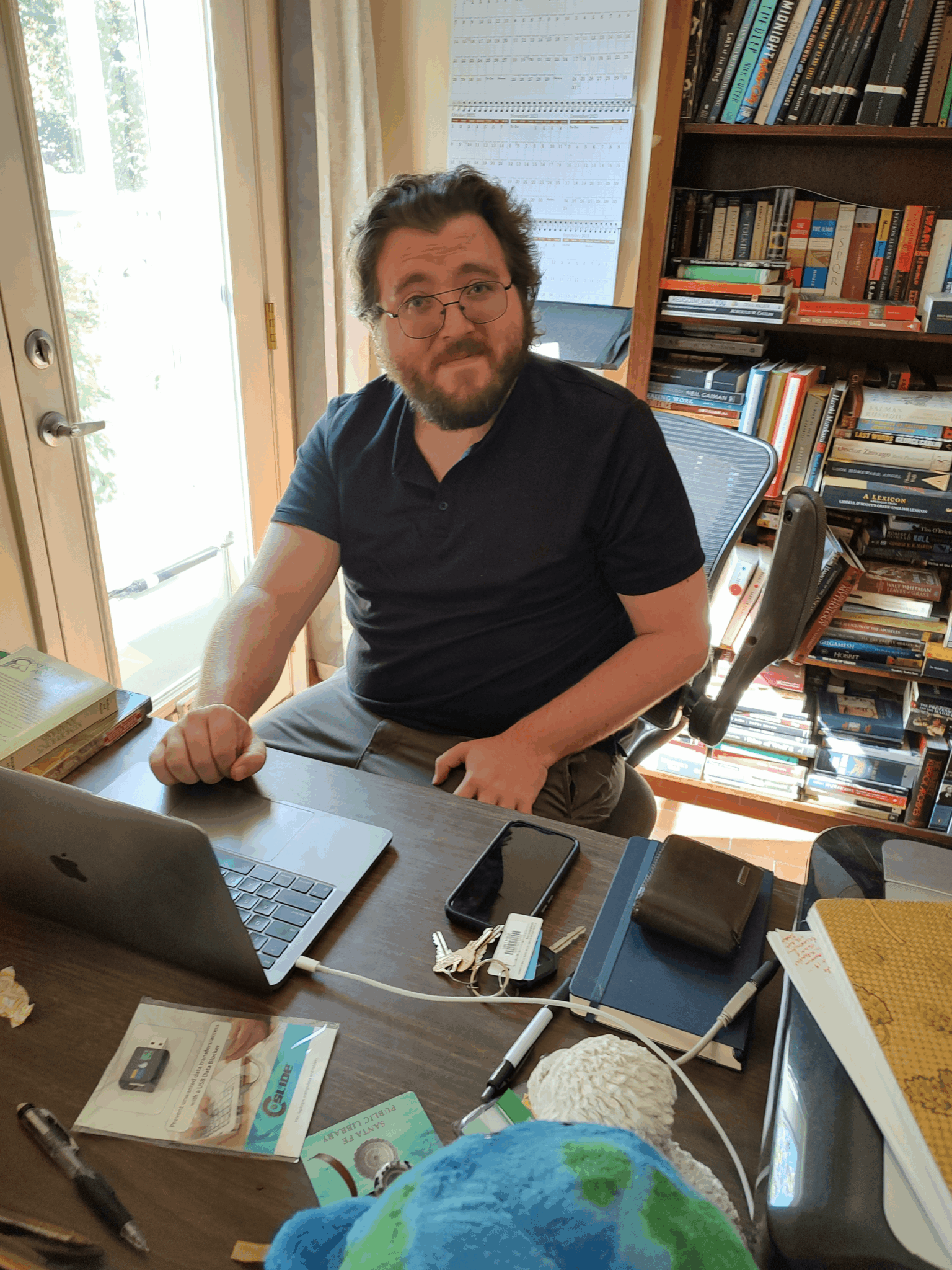Today we’d like to introduce you to Thomas Crowe.
Hi Thomas, we’d love for you to start by introducing yourself.
It’s pretty straightforward. I was born in Las Vegas, Nevada in 1994, lived there till my mid-twenties, until, in 2019, I moved out to Santa Fe to attend St. John’s College in hopes of finally completing my undergraduate degree. A number of factors—COVID among them—delayed my progress on that front and for financial reasons, I needed to leave St. John’s and attend the University of New Mexico, Albuquerque. I chose to pursue a degree in Classical Studies, which wasn’t far off from the general liberal arts degree I would have gotten from St. John’s. The primary difference between the two is really one of focus. Classical Studies goes into the languages in-depth, principally Latin and Ancient Greek, while liberal arts, as it was taught up at St. John’s, uses language more as a means of appreciating the translations you’re working with in the seminar classes. Either way, both approaches have helped my writing immensely, especially when you consider that to study these languages and translate works written in them is to open up the door to understanding two of our world’s most consequential civilizations: their history, how they saw themselves, their intellectual and literary traditions. I digress, but I would say that it is my studies thus far that have been among the most formative influences in my life; that, and the prime reason why it took so long for me to get my degree. Through much of my twenties, I had to deal with a number of medical problems that slowed my progress in academia. Without my writing, I’m not sure I would have gotten through those years as well as I have.
I’m sure it wasn’t obstacle-free, but would you say the journey has been fairly smooth so far?
By no means. And are any roads smooth? Like I said, throughout my twenties, I had to deal with a number of medical challenges that slowed my progress in academia. Writing, which I’d been doing more-or-less since the third grade, was the only outlet I had in those years. I guess you could say it was a form of therapy. And I suppose what strengths I have as a writer come from the fact that I really felt like I had no other choice but to focus on that kind of work, since it kept me motivated and gave some light to my life when things were at their bleakest. Back then, I used to think I wouldn’t ever have a life. Not the life I had wanted and imagined at any rate. Simple extrapolation out from the present moment, which was far from ideal.
Appreciate you sharing that. What else should we know about what you do?
I am a creative writer, and for the most part I write novels and short stories, with the occasional book review. Now as far as being known, I’ve got quite a ways still to go. However, at present I’ve published two short stories in the following journals: Issue I, Volume V of the Signal Mountain Review out of the University of Tennessee, and Danse Macabre. A third is slated for inclusion in an anthology in the UK— “Lovecraftiana: a Magazine of Eldritch Horror”—around February 2, 2025. All of these, but in particular the third story, can be placed in the horror genre, at least to some degree. Which probably explains why a magazine that harkens back to cosmic horror in its title seemed so keen to take on the piece.
I’m especially proud of this third story. It represents something of a risk, at least for me. I don’t tend to write in dialect—that is, in the written form of some regional version of English. The diction of the story doesn’t reflect (so far as I’m aware) any documented dialect. That said, I did try to model it off of my impressions growing up in Nevada, nodding towards how people talk in Pahrump, a small town about an hour outside of Las Vegas, and up in Northern Nevada in and around Carson City.
Now as far as what sets me apart … to be honest, I might be too much insulated in my own little corner to really get an accurate sense of this. I read contemporary authors, but if you were to look at my shelf, you’d see that, for every present-day sensation, there’s a writer who would certainly be considered old-fashioned, if not archaic. Some of them are quite ancient, in fact. I bring this up because my reading habits reflect the authors that have shaped me so far. If reading Stephen King and Cormac McCarthy gave me the writing bug when I was a kid, it’s people like Homer and Herodotus, Dickens and Dostoyevsky, Twain, Poe, Melville, and Hemingway, that have actually helped expand my toolbox as a writer. Might explain why I think about genre the way I do: more as a spring board towards something new rather than just another homage. And—something of a paradox—I find that by being in conversation with writers from several generations back, I find that sense of newness. I don’t think that sentiment is all that radical.
What were you like growing up?
I think I was a fairly quiet kid. Not all that gregarious. At least I didn’t feel that way. I was thinking in story terms well before I could actually write, always drawing pictures in sequence. A few sheets of printer paper, or all the way to the back cover on one of Dad’s legal pads. These pieces were not comic-book level masterpieces by any means and they were hopelessly derivative, coming from movies I watched or video games I’d played. One could never tell from one picture to the next how any of them fit together. But what counted was that I was thinking in terms of sequence, and once I could actually write words, it just snowballed from there.
Once I could read, I was reading all the time. Didn’t matter at all where I happened to be. My parents encouraged that interest and helped it along by exposing me to all sorts of different authors. Homer, Dickens, Poe, and Melville were the big four back then.
Probably the most extrovert I ever got was when I went through my theater phase. And I could work through a fair portion of the anxiety on stage by simply pretending I was someone else living in some other world.
Never much got into sports, except maybe swimming and Little League baseball. At least I was competent in the outfield, if not all that great at first base.
I was also obsessed with meteorology, natural disasters, shipwrecks, mythology, history. Every once in awhile those old preoccupations rear up to remind me that I still have the itch. Might explain why fiery mountains, earthquakes, floods, tornadoes, asteroids, oblique references to maritime disasters, historical epochs, and maybe even a throwback to Medusa, Cerberus, or the Humbaba creature from Gilgamesh, always seem to be chomping at the bit to jump into the yarn.
Contact Info:
- Website: themidiandispatches.wordpress.com
- Linkedin: linkedin.com/in/thomas-crowe-9761a9273
- Other: [email protected]






